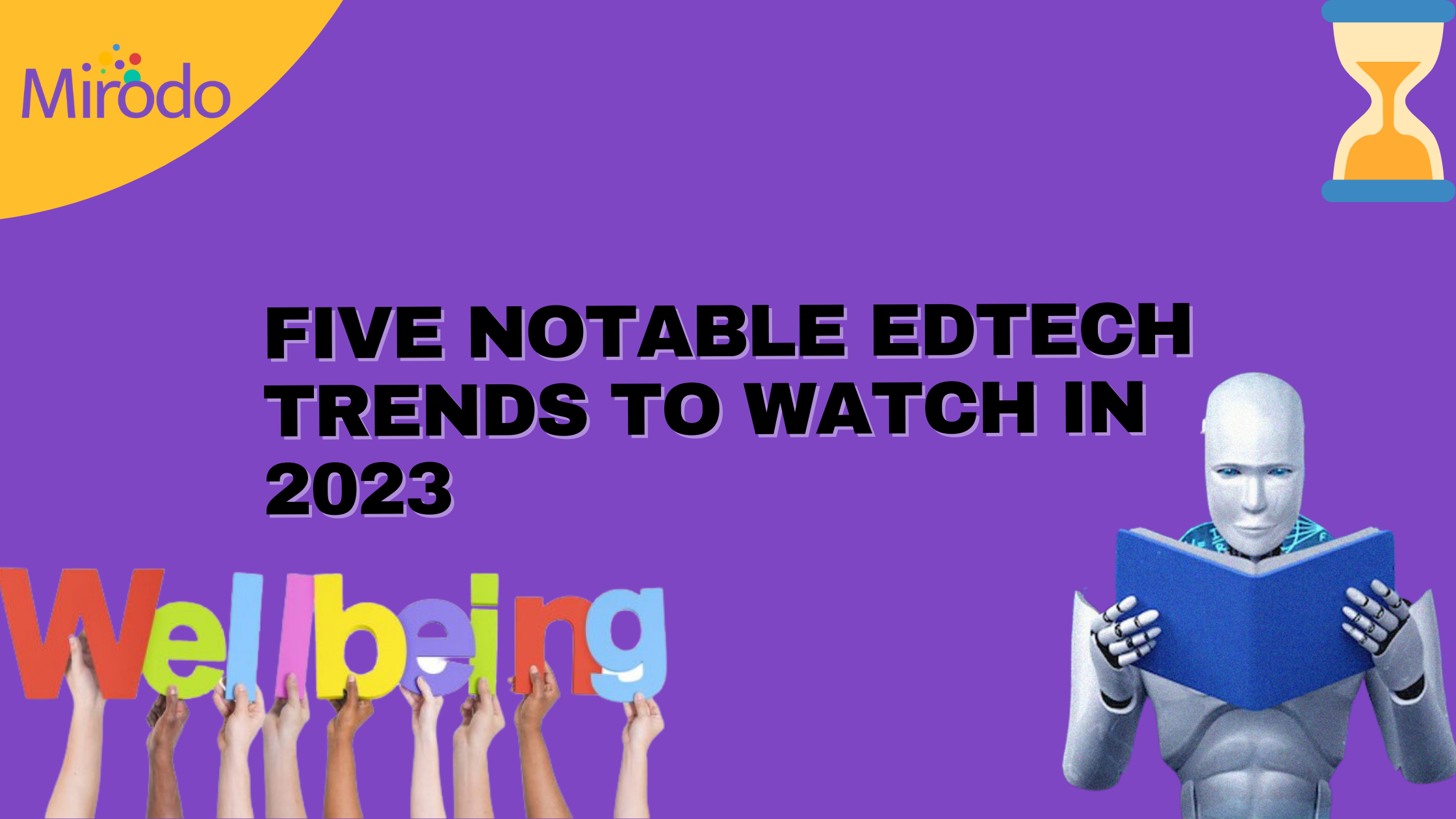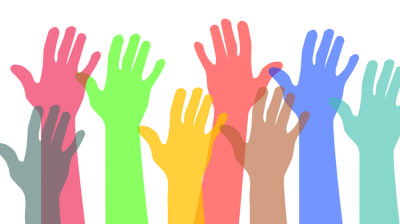
Edtech has shifted over the last three years due to the intense impact the Covid-19 pandemic has had on how Edtech businesses operate and school pupils having to embrace remote learning worldwide. We know innovations in Edtech will continue as years progress; however, British pupils may not be ready for another subversion of the education framework. Whilst it might not be on the same scale as the pandemic, these five notable Edtech Trends and how they can shape pupils’ learning are ones to watch in 2023.

1) AI and Education
With the growing accessibility of ChatGpt since November 2022 to write out near-enough whatever you want, it could be solely relied upon by teachers in unexpected ways to save time for work creation in the future because of its potential to create specific questions around specific pupils. Of course, teachers are likely doing this already to simplify questions for special needs pupils who might not understand particular questions on outdated worksheets. However, with the inevitable advancement of Generative AI in the next few years, there is the potential of it to interlink with pupil databases, particularly, the teacher report aspect of them to create work that caters to all pupils that continually adapts to their behaviour, challenges, learning styles and continually keeps up to date with the national curriculum.

2) Digital Handwriting Apps and Translatability onto Paper
Undoubtedly, most teachers will have told their pupils that cursive writing and joined-up writing will last forever. It is one of the most questionable aspects of education; with the introduction of iPads, laptops and tablets in the classroom during the turn of the 2010s, both styles are slowly becoming, or to some, already obsolete. Handwriting practice is often a contentious issue among parents, pupils and teachers in the early stages of education because of the need for writing throughout life and its importance in exams.
Many apps from certain Edtech companies cater to young children allowing them to reshape their letters with writing tasks containing digital prompts telling them where they are going wrong. Many of them require a special ergonomic pen for pupils to use. Others do not. Teachers and parents can set strictness to ensure pupils are always progressing. Some may question whether these apps work as opposed to a traditional pen-to-paper, but more digital handwriting apps will be in development and become more interactive.
While there are differences in how handwriting translates from digital to paper, these apps can positively impact children’s penmanship. However, this issue will be at the forefront of parents and teacher’s minds as these apps develop.

3) Edtechs being called upon to help with student wellbeing
In recent years, there has been a growing awareness of the importance of student well-being in the education system. With the rise of mental health issues among young people and the added stress of the COVID-19 pandemic over the last two years, it is more urgent than ever for schools to prioritise their pupils’ mental and emotional health.
Edtech companies are now creating digital tools and platforms that can help promote student well-being. From mindfulness apps to virtual counselling services, they aim to provide students with support to cope with challenges inside and outside the classroom. Since schools have been continuing to prioritise student well-being, particularly with the introduction of pastoral care, there will no doubt be an increasing number of Edtech apps looking after pupils’ mental health in years to come.

4) The integration of gaming and education
With gaming constantly developing, Edtech companies have had to keep finding new ways to integrate it into education. It is partly because of a massive shift in attitudes toward gaming as a niché hobby and not just something for stereotypical nerds. Factors such as the mainstreaming of gaming since the 90s/early 2000s and the rise of internet gaming since the 2010s are also responsible.
Teachers have found that Edtech apps containing games when used correctly, improve problem-solving, induce lateral thinking, increase confidence and create more opportunities for appropriate social activity, allowing teamwork to occur. Despite the risk of gaming addiction, Edtech Apps have features that enable pupils to use them for a specific time.
As Edtech gaming apps develop, newer gaming technologies like V.R. will end up in the classroom to help students learn subjects from a younger age. Edtech gaming apps will become a staple in classrooms worldwide, making textbooks and worksheets redundant.

5) Inclusive learning
No matter the purpose of an Edtech app, each one will slowly be called upon to cater to neurodivergent people more in the future. With the rise of neurodivergent pupils, Edtech developments and tools being rolled out into classrooms simultaneously, Edtech developers must find robust ways to cater to neurodivergent pupils and diverse learning styles. Edtech apps that do not have features that cater to neurodivergent pupils will exclude learners and hinder neurodivergent pupils’ learning experiences. Features such as having emojis or pin codes to log in to an Edtech app will become commonplace to enable neurodivergent pupils to use them. The availability of these in all Edtech apps in the future will not be a surprise; with the advancement of technology, there is no doubt that all Edtech apps will become individualised to cater to all learning styles, types of pupils etc.
This year promises to be significant for the Edtech industry as it experiences rapid growth. The future of education is looking brighter than ever, and students can expect a more personalised and engaging learning experience, leading to better academic outcomes. As teachers, parents and schools continue to embrace technology; it is crucial to ensure that they are used to enhance teaching and not considered novelties and that student well-being remains a top priority in the Edtech space.